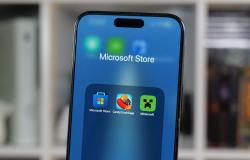TikTok was one of the most popular apps in India until it was banned in 2020. What followed is a lesson for the US if they take a similar decision in the near future.
In 2020, India was the biggest market for TikTok, where it had a growing user base of 200 million, offering huge opportunities for creators and influencers, the BBC writes.
After border tensions between India and China culminated in deadly violence, on 29 June 2020, the Indian government banned the app. TikTok has disappeared in India, but the country’s TikTok accounts and videos are still online, frozen in time.
On April 24, President Joe Biden signed a law that could eventually lead to a ban on TikTok in the US. The company that owns TikTok, Bytedance, is required to sell its stake in the app within the next nine months, with an additional three-month grace period, or risk the app being banned in the US. Bytedance representatives have said they have no plans to sell the social media platform and have threatened to challenge the law in court.
Banning a hugely popular social media app would be an unprecedented moment in American tech history, and India’s experience shows what can happen when a large country deletes TikTok from its citizens’ smartphones. In short, the moral is that users adapt quickly, but with TikTok, a large part of its culture disappears.
Mumbai-based film critic Sucharita Tyagi had 11,000 followers and videos with millions of views when TikTok was shut down.
“TikTok was huge. People gathered from all corners of the country, danced, performed skits, narrated how they run their household in their small hill town,” says Tyagi.
“There were massive numbers of people suddenly having this exposure that had always been denied them, but was now possible,” she adds.
The app was a phenomenon in particular because of the ways in which its algorithm provided opportunities for rural Indian users, who were able to find an audience and even achieve celebrity status, which was not possible with other apps.
“It has democratized reactions to content for the first time,” says Prasanto K Roy, a writer and technology analyst based in New Delhi.
“We started seeing a lot of people from rural areas, relatively low on the socio-economic scale, who would never have dreamed of getting a large following or making money from it,” he explains.
TikTok has similar cultural significance in the US, where niche communities thrive and an unspecified number of small creators and businesses base their existence on the app.
Along with TikTok, the Indian government banned 58 other Chinese apps, including some that are currently growing in popularity in the US, such as the fashion shopping app Shein, and in subsequent years banned over a hundred other Chinese apps.
The same could happen in the US, as privacy and national security concerns targeting TikTok may apply to other companies as well.
A lot of companies have tried to fill the void left by the disappearance of TikTok in India, but according to analysts who spoke to BBC journalists, Instagram and YouTube have benefited the most from this situation. However, these platforms have not been able to replicate the feeling of Indian TikTok.
Again, the same developments could be taking place in the US, although things are a little different now than they were four years ago.
In the US there are 170 million TikTok users compared to the app’s 200 million in India, but in the case of the United States we are talking about more than half of the country’s population (while India has a total population of 1.4 billions of people).
“When India banned TikTok, the app wasn’t the giant it is now,” says Tyagi, adding, “It’s turned into a cultural revolution in recent years. I think banning it now in America would have a much bigger impact.”
CS







